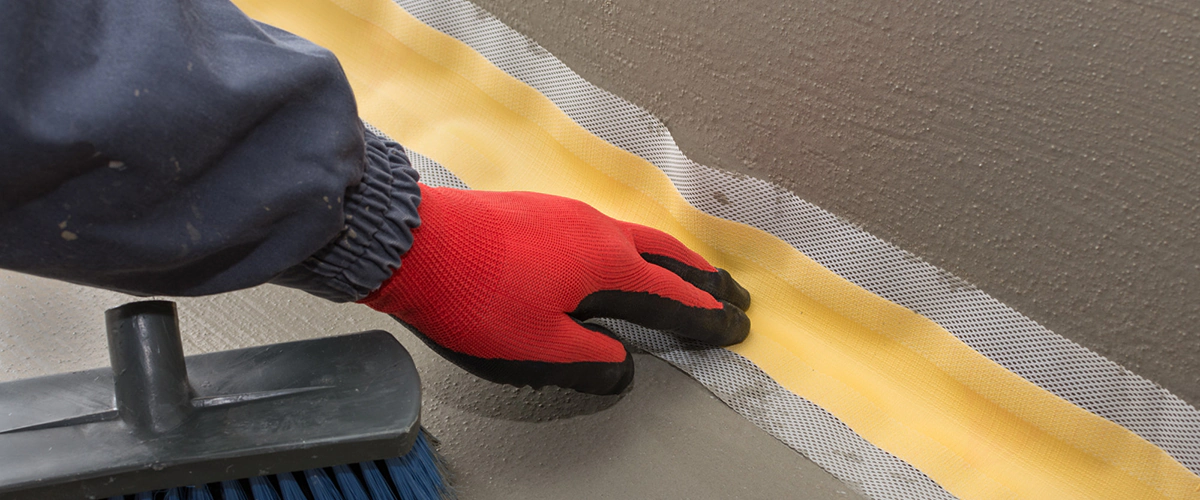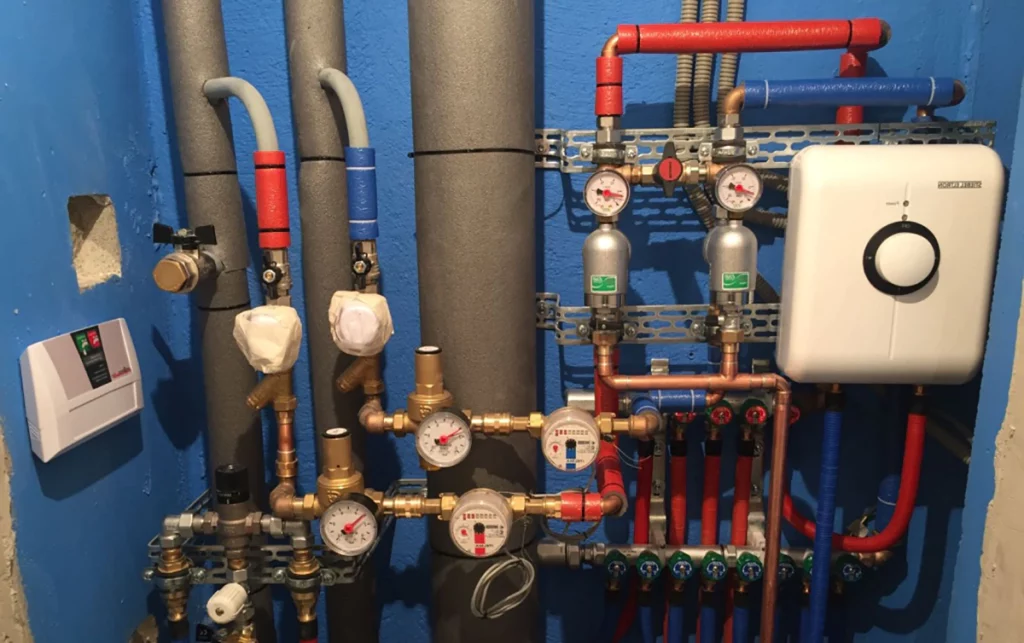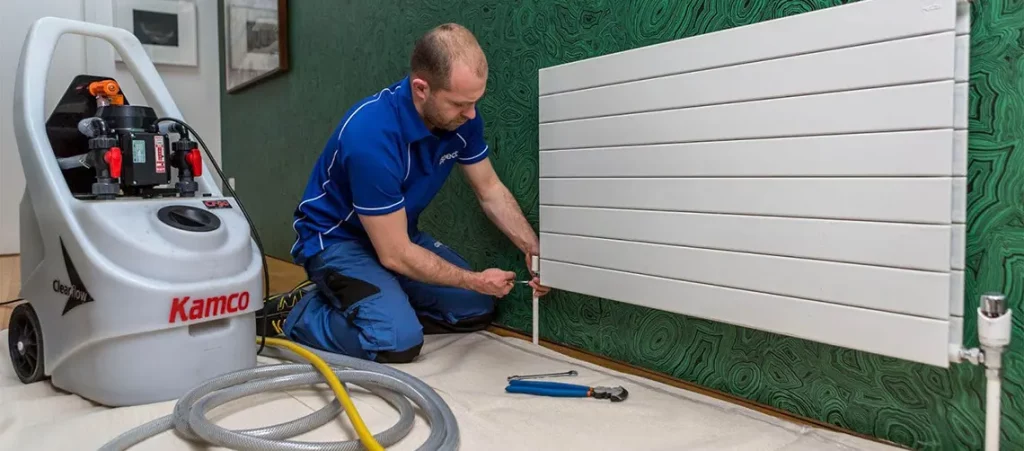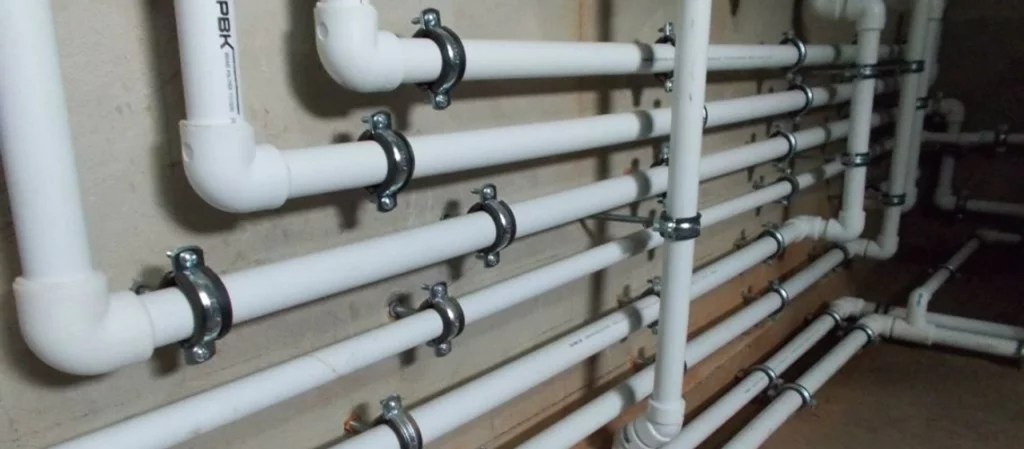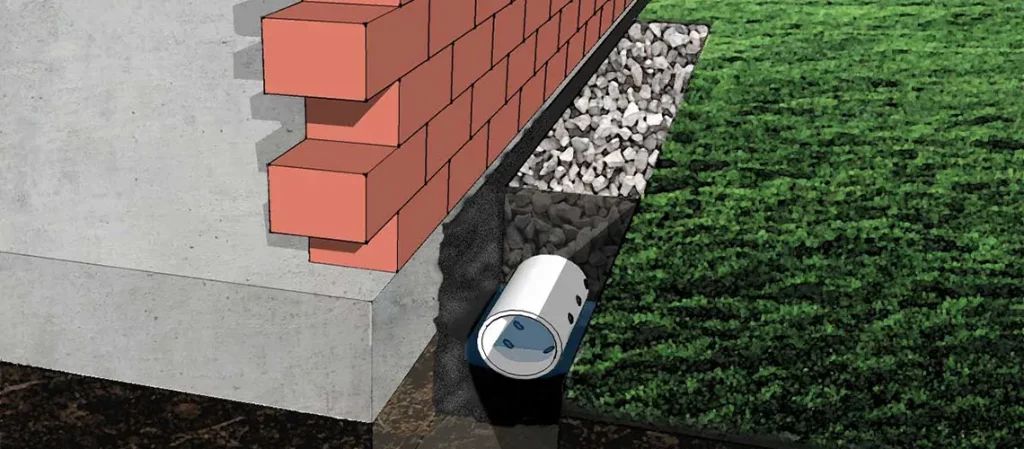Basement waterproofing is a crucial investment in maintaining the structural integrity of your home. Ensuring its longevity is equally important. Let’s delve into the factors affecting the lifespan of basement waterproofing, methods to choose from, and whether opting for professional services or a DIY approach makes a difference.
Basement waterproofing isn’t a one-size-fits-all solution. The lifespan of your waterproofing efforts depends on various factors, making it essential to understand and address them.
Contents
- 1 Factors Affecting Basement Waterproofing Last
- 2 Choosing the Right Waterproofing Method
- 3 Professional vs. DIY Waterproofing: Which Lasts Longer?
- 4 Signs Your Basement Waterproofing Needs Attention
- 5 Comparing Waterproofing Materials for Durability
- 6 Maintenance Tips for Prolonging Waterproofing Lifespan
- 7 Real-life Examples: How Long Did Their Waterproofing Last?
- 8 Common Mistakes Leading to Premature Waterproofing Failure
- 9 Budgeting for Long-Term Basement Waterproofing Success
- 10 Expert Advice: Ensuring Lasting Protection for Your Basement
Factors Affecting Basement Waterproofing Last
Basement waterproofing is a crucial investment for homeowners looking to protect their property from water damage. The effectiveness and longevity of basement waterproofing are influenced by various factors that need careful consideration. Let’s explore these factors to better understand how they impact the lasting protection of your basement.
- Climate and Weather Conditions
The environment plays a pivotal role in how long your basement waterproofing will last. Extreme weather conditions can expedite wear and tear, emphasising the need for weather-appropriate materials and techniques.
- Quality of Materials Used
The durability of waterproofing largely depends on the quality of materials employed. Cutting corners here might save you money initially but could result in premature failure down the line.
- Proper Installation Techniques
Even with top-notch materials, improper installation can compromise the effectiveness of basement waterproofing. Professional installation ensures that every detail is attended to, maximising the lifespan of your investment.
Choosing the Right Waterproofing Method
With various waterproofing methods available, choosing the right one is critical. Each method has its advantages and drawbacks, influencing how long your basement remains protected.
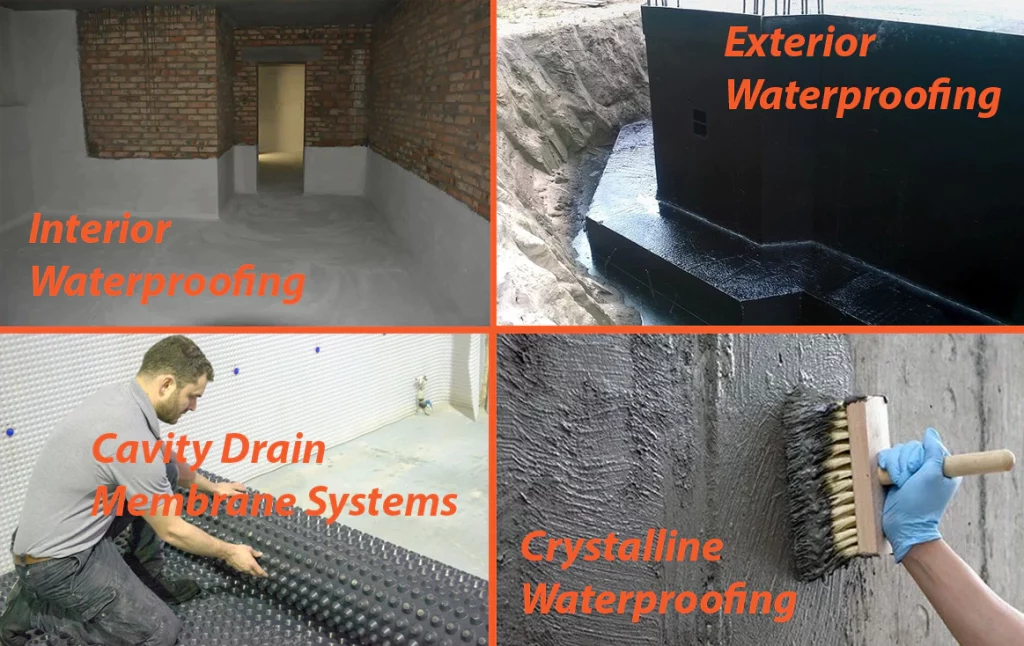
When it comes to basement waterproofing, selecting the appropriate method is crucial for ensuring the long-lasting protection of your property. There are various methods available, each with its advantages and drawbacks. Let’s delve into the options to help you make an informed decision based on your specific needs and circumstances.
Overview of Available Methods
- Interior Waterproofing
- Description: This method involves addressing water-related issues from the inside of the basement. It includes the installation of drainage systems and sump pumps.
- Pros: Effective for managing water that has already entered the basement. Typically less disruptive to the landscape.
- Cons: Does not prevent water from penetrating the foundation.
- Exterior Waterproofing
- Description: Focuses on preventing water from entering the basement by applying waterproof coatings and installing drainage systems on the outside of the foundation.
- Pros: Provides a barrier against water intrusion. Addresses issues at the source.
- Cons: Can be more invasive and expensive. Requires excavation around the foundation.
- Cavity Drain Membrane Systems
- Description: Involves the installation of a membrane on the interior walls to manage and redirect water to a drainage system.
- Pros: Allows for continuous monitoring and maintenance. Provides a controlled drainage path.
- Cons: Relies on the effectiveness of the drainage system.
- Crystalline Waterproofing
- Description: Application of crystalline substances to concrete surfaces, creating a barrier against water penetration.
- Pros: Becomes an integral part of the concrete structure. Durable and resistant to wear.
- Cons: Application can be challenging. Effectiveness may vary based on the concrete quality.
Pros and Cons of Each Method
Pros
- Interior waterproofing is effective for managing existing water issues.
- Exterior waterproofing prevents water intrusion at the source.
- Cavity drain membrane systems provide continuous monitoring and controlled drainage.
- Crystalline waterproofing becomes a lasting part of the structure.
Cons
- Interior waterproofing does not stop water from entering the foundation.
- Exterior waterproofing can be invasive and costly.
- Cavity drain membrane systems rely on the efficiency of the drainage system.
- Crystalline waterproofing applications may pose challenges.
Choosing the right waterproofing method depends on factors such as the severity of water issues, budget constraints, and personal preferences. Consulting with a waterproofing professional can provide valuable insights tailored to your specific situation, ensuring that you make a decision that aligns with your long-term protection goals.
Professional vs. DIY Waterproofing: Which Lasts Longer?
While the DIY approach may be tempting, professional waterproofing often guarantees longer-lasting results. We’ll weigh the pros and cons, helping you make an informed decision.
When it comes to basement waterproofing, homeowners often face the dilemma of choosing between professional services and a do-it-yourself (DIY) approach. Both options have their merits, but the longevity of the waterproofing solution is a critical consideration. Let’s explore the advantages and drawbacks of each to help you make an informed decision on what will provide lasting protection for your basement.

Advantages of Professional Waterproofing
- Expertise and Experience
- Professional Touch: Waterproofing professionals bring a wealth of knowledge and experience to the table. They are trained to assess unique challenges and implement effective solutions.
- Proper Diagnosis: Professionals can accurately diagnose the root cause of water issues, ensuring that the waterproofing strategy is targeted and comprehensive.
- Quality Materials and Techniques
- Top-notch Materials: Professionals use high-quality waterproofing materials that are designed for durability. This contributes significantly to the longevity of the waterproofing system.
- Proven Techniques: Professional waterproofing involves tried-and-tested techniques that are known for their effectiveness. This ensures a robust and lasting solution.
- Comprehensive Solutions
- Customised Approach: Professionals tailor their waterproofing solutions to the specific needs of your basement. This personalised approach addresses individual challenges, maximising the effectiveness of the waterproofing.
- Warranty and Guarantee
- Peace of Mind: Many professional waterproofing services come with warranties or guarantees. This provides homeowners with peace of mind, knowing that they can rely on the effectiveness of the solution.
Risks and Benefits of DIY Waterproofing
- Cost Savings
- Budget-Friendly: DIY waterproofing projects can be more budget-friendly upfront. Homeowners can save on labour costs by taking on the project themselves.
- Hands-On Experience
- Learning Opportunity: DIY waterproofing allows homeowners to learn more about their homes and gain hands-on experience. It can be a rewarding process for those who enjoy tackling home improvement projects.
- Risk of Mistakes
- Lack of Expertise: DIY projects carry the risk of mistakes due to a lack of professional expertise. Incorrect installation or material choices can lead to a shorter lifespan for the waterproofing system.
- Limited Tools and Resources: Homeowners may not have access to the specialised tools and resources that professionals use, potentially affecting the quality of the waterproofing.
- Time and Effort
- Time-Consuming: DIY waterproofing projects can be time-consuming. The learning curve and the need to research and plan can extend the time it takes to complete the project.
Making the Decision
Choosing between professional and DIY waterproofing depends on factors such as budget, the complexity of the issue, and personal skills. While DIY projects offer a sense of accomplishment and potential cost savings, professional services provide expertise, quality assurance, and long-term reliability. For homeowners prioritising the lasting protection of their basement, consulting with a waterproofing professional is often the best route to ensure a solution that stands the test of time.
Signs Your Basement Waterproofing Needs Attention
Basement waterproofing is an essential aspect of home maintenance, but over time, even the most reliable systems can show signs of wear and tear. Recognizing these signs early can save you from costly repairs and potential damage to your property. Here are key indicators that your basement waterproofing may need attention:
- Damp or Musty Odours
- Sign: Unpleasant smells in your basement.
- Cause: Accumulation of moisture leading to mould and mildew growth.
- Action: Investigate and address the source of the moisture promptly.
- Visible Mould or Mildew
- Sign: Spots or patches of mould on walls, floors, or belongings.
- Cause: Excess humidity or water intrusion.
- Action: Clean and remove mould, then identify and fix the water source.
- Puddles or Water Stains
- Sign: Standing water or noticeable water stains on walls or floors.
- Cause: Leaks or seepage through the foundation.
- Action: Locate and repair the source of the water entry.
- Efflorescence
- Sign: White, chalky residue on basement walls.
- Cause: Water moving through concrete, depositing minerals.
- Action: Waterproof exterior walls and manage interior moisture.
- Cracks in Foundation
- Sign: Visible cracks in the foundation walls or floor.
- Cause: Structural shifts or pressure from water.
- Action: Assess and repair foundation cracks promptly.
Comparing Waterproofing Materials for Durability
Selecting the right materials for your basement waterproofing is crucial for ensuring longevity. Here’s a comparison of common waterproofing materials:

- Polyurethane Sealants
- Durability: High
- Pros: Flexible, effective for sealing cracks.
- Cons: Can deteriorate over time with UV exposure.
- Cementitious Waterproofing
- Durability: Moderate
- Pros: Adheres well to masonry surfaces.
- Cons: Not suitable for active leaks, can crack.
- Bituminous Coatings
- Durability: Moderate to High
- Pros: Effective barrier against water.
- Cons: Can become brittle and crack.
- Elastomeric Membranes
- Durability: High
- Pros: Flexible, resistant to UV exposure.
- Cons: Initial cost may be higher.
Maintenance Tips for Prolonging Waterproofing Lifespan
Preserving the effectiveness of your basement waterproofing requires regular maintenance. Follow these tips to prolong the lifespan of your waterproofing system:
- Gutter Maintenance
- Action: Keep gutters clean and ensure proper drainage away from the foundation.
- Landscaping Considerations
- Action: Slope the landscape away from the house to prevent water pooling around the foundation.
- Regular Inspections
- Action: Periodically inspect walls and floors for signs of leaks or damage.
- Sealant Checks
- Action: Check and refresh sealants as needed, especially in high-traffic areas.
Real-life Examples: How Long Did Their Waterproofing Last?
Explore real-life examples of successful basement waterproofing endeavours. These case studies offer valuable insights into different scenarios and highlight the effectiveness of various waterproofing methods. Learn from the experiences of homeowners who have successfully protected their basements from water damage.
Common Mistakes Leading to Premature Waterproofing Failure
Avoidable errors during installation and maintenance can significantly impact the lifespan of your basement waterproofing. Learn from common mistakes that homeowners make, and discover how to steer clear of pitfalls that could lead to premature failure of your waterproofing system.
Budgeting for Long-Term Basement Waterproofing Success
Effective waterproofing requires careful budgeting. Plan your budget thoughtfully, considering both short-term costs and long-term benefits. Explore cost-effective strategies for ensuring the success and longevity of your basement waterproofing.
Expert Advice: Ensuring Lasting Protection for Your Basement
Benefit from the insights of waterproofing experts. Discover valuable tips and advice on ensuring lasting protection for your basement. Stay informed about the latest trends and innovations in basement waterproofing to make informed decisions about the well-being of your home.
FAQs
The lifespan varies but, with proper maintenance, can extend for several years.
While possible, professional services often ensure more reliable and longer-lasting results.
Regular inspections, at least annually, can catch issues early, preventing costly repairs.



